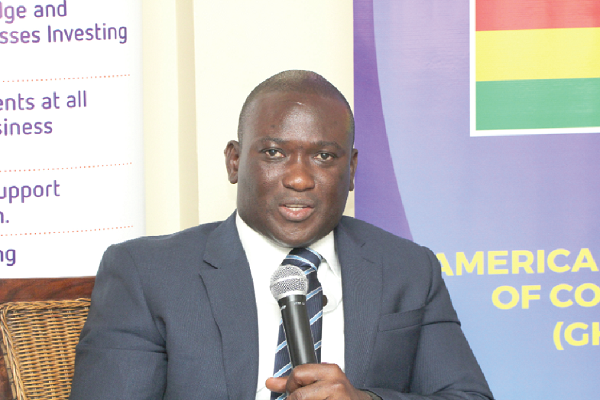The National Petroleum Authority (NPA) is undertaking sweeping reforms in the downstream petroleum industry before the end of the year as part of drastic measures to halt the high incidence of gas explosions in the country.
As part of the reforms, the authority will set up six sites at strategic locations in exclusive industrial zones for the discharge and storage of Liquefied Petroleum Gas (LPG) for onward refill into bottles for distribution.
In what is expected to bring some relief and reduce the anxiety of members of the public regarding rampant gas explosions in the country, the acting Chief Executive Officer of the NPA, Mr Hassan Tampuli, who announced this in Accra yesterday, said under the new arrangement, all existing LPG filling plants would no longer be permitted to discharge gas into bottles (cylinders) within their premises.
Addressing a luncheon of members of the American Chamber of Commerce (AMCHAM) Ghana as part of its oil and gas month, Mr Tampuli said instead, “the LPG filling plants will now be required to sell LPG in well-labelled bottles to the public.”
Mr Tampuli said the filling plant owners would be responsible for the maintenance of the bottles and, therefore, “members of the public will no longer have to own their bottles but will just walk in to by their LPG.”
Mr Tampuli said the NPA had been on the ground and sanctioning companies that were not operating within the standards set by the authority.
He stated that in due course, about 200 safety experts would be engaged and deployed across the country to conduct safety audits of all filling stations.
Health and safety
The NPA CEO said the authority was working on improving adherence to safety standards by Petroleum Service Providers (PSP).
“As part of the measures to achieve this, the NPA has begun a rigorous safety campaign nationwide. This includes media engagements, door-to-door public education and regular safety audit of all retail outlets”, he said.
Mr Tampuli said any petroleum service provider found to have compromised on safety would be heavily sanctioned, including withdrawal of licences.
He added that the NPA would also set a day aside as a national safety day which would be used to promote the petroleum products safety message.
On measures to enhance the existing Legislative instruments (LI) and the NPA Act to make it more robust and in tandem with changing trends, Mr Tampuli said work was underway to revise the laws.
“Legislative Instruments and a new NPA Act are being drafted to reflect the dynamics of the evolving industry and when assented into law, will be strictly enforced to ensure that petroleum service providers operate within the confines of the law.
Export guidelines
Mr Tampuli said the NPA, following the directive of the Economic Management Team of the government, had recently issued new export guidelines to help curb the menace of dumping of petroleum products purported for export onto the local market.
Revised fuel standards
“In fulfilment of the sub-regional agreements that the authority has signed up to, NPA facilitated the amendment of the sulphur standards in fuels consumed in the country from 3,000 parts per million (ppm) and 1,500 ppm in diesel and petrol respectively to 50 ppm”, he said.
According to him, that would go a long way to improve upon the environmental standards in the country.
“We need the collaboration of the Driver and Vehicle Licensing Authority (DVLA) to issue a complementary vehicle import policy which restricts the age of imported vehicles to a reasonable number so that we can achieve lower carbon emissions as a country.”
Mr Tampuli said the NPA was currently collaborating with the relevant authorities to achieve that new direction.
Upstream sector
For his part, the acting Chief Executive Officer of the Petroleum Commission, Mr Egbert Failbille, said good governance and institutional capacity building was a ‘sine quo non’ to ensuring efficient exploitation of petroleum resources.
According to him, Ghana’s regulatory policies for the upstream stemmed from the need to maintain a balance of multiple interests such as environmental, economic and social values; while allowing for significant inflow of investments into the sector and accelerated economic development of the country. — GB
